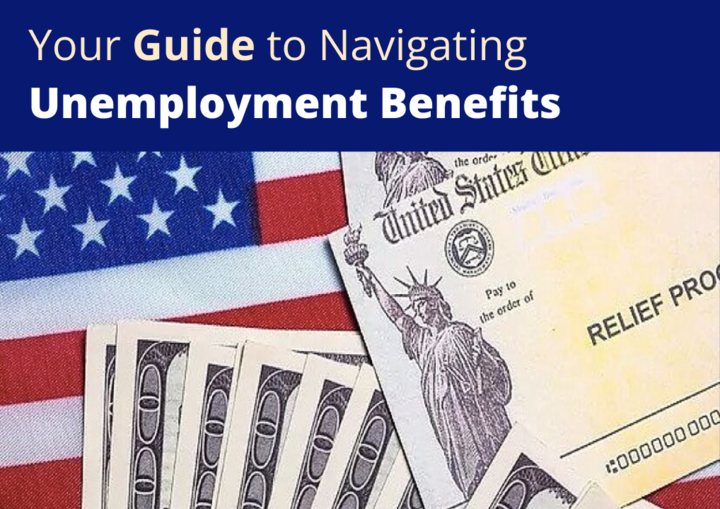An extended warranty, often referred to as a vehicle service contract, is a type of protection plan that covers certain repairs and services for a vehicle after the manufacturer’s warranty has expired. Unlike traditional warranties that come with new vehicles, extended warranties can be purchased at any time, typically before the original warranty expires or shortly thereafter. These contracts can vary significantly in terms of coverage, duration, and cost, and they are designed to provide peace of mind to vehicle owners by mitigating the financial burden of unexpected repairs.
The scope of an extended warranty can range from basic powertrain coverage, which includes essential components like the engine and transmission, to comprehensive plans that cover nearly all aspects of the vehicle, including electrical systems, air conditioning, and even roadside assistance. The specifics of what is covered and what is not can differ widely between providers, making it crucial for consumers to thoroughly read and understand the terms before committing to a plan. This understanding is especially important for older cars, where the likelihood of mechanical issues may increase as the vehicle ages.
Key Takeaways
- An extended warranty is a service contract that covers the cost of certain repairs and replacements for a specified period of time after the manufacturer’s warranty expires.
- The cost of an extended warranty for older cars is typically higher due to the increased likelihood of mechanical issues and the higher cost of repairs.
- Coverage options for older cars may include powertrain coverage, comprehensive coverage, or exclusionary coverage, each with varying levels of protection.
- Factors to consider when deciding on an extended warranty for older cars include the car’s reliability, the cost of potential repairs, and the length of coverage offered.
- Benefits of having an extended warranty for older cars include peace of mind, financial protection from unexpected repairs, and potential increase in resale value.
The cost of an extended warranty for older cars
When considering an extended warranty for older cars, the cost can vary significantly based on several factors, including the make and model of the vehicle, its age, mileage, and the level of coverage desired. Generally, older cars tend to have lower warranty costs compared to newer models because they are often less expensive to repair. However, this does not mean that the cost is negligible; in fact, premiums can still range from a few hundred to several thousand dollars depending on the specifics of the plan.
For instance, a basic powertrain warranty for an older sedan might cost around $1,000 for a three-year term, while a more comprehensive plan that includes additional coverage for electrical systems and other components could exceed $2,500. Additionally, deductibles may apply when making a claim, which can further influence the overall cost-effectiveness of the warranty. It is essential for consumers to weigh these costs against their budget and the potential repair expenses they might face with an aging vehicle.
Coverage options for older cars
The coverage options available for older cars can be quite diverse, reflecting the varying needs and preferences of vehicle owners.
Basic plans typically cover essential components such as the engine, transmission, and drivetrain.
These plans are often more affordable and may be suitable for owners who are looking to protect themselves against major repair costs without investing in extensive coverage.
On the other hand, more comprehensive plans can include coverage for a wider array of components, such as electrical systems, air conditioning units, and even high-tech features like infotainment systems. Some warranties may also offer additional perks such as roadside assistance, rental car reimbursement, and trip interruption coverage. For example, if an older car breaks down while on a road trip, a comprehensive warranty might cover not only the repair costs but also provide a rental car while the vehicle is being serviced.
This level of coverage can be particularly appealing for those who rely heavily on their vehicles or who frequently travel long distances.
Factors to consider when deciding on an extended warranty for older cars
Several critical factors should be taken into account when deciding whether to purchase an extended warranty for an older car. First and foremost is the vehicle’s reliability history. If the car has a track record of frequent repairs or known issues with specific components, investing in an extended warranty may provide valuable protection against future expenses.
Conversely, if the car has been well-maintained and has a reputation for reliability, the need for additional coverage may be less pressing.
Another important consideration is the cost of potential repairs versus the cost of the warranty itself.
Researching common repair costs for specific makes and models can provide insight into whether an extended warranty is financially prudent.
For instance, if major repairs for a particular model typically run into thousands of dollars and the warranty premium is significantly lower than that amount, it may be worth considering. Additionally, consumers should evaluate their own financial situation; if unexpected repair costs would pose a significant burden, an extended warranty could offer peace of mind.
Benefits of having an extended warranty for older cars
One of the primary benefits of having an extended warranty for older cars is financial protection against unexpected repair costs. As vehicles age, they become more susceptible to mechanical failures and breakdowns. An extended warranty can help mitigate these risks by covering repairs that would otherwise require out-of-pocket expenses.
This financial safety net can be particularly beneficial for individuals on a fixed budget or those who may not have substantial savings set aside for emergencies. Moreover, extended warranties often come with added conveniences that enhance the ownership experience. Many plans include features such as roadside assistance, which can be invaluable in situations where a vehicle breaks down unexpectedly.
Additionally, some warranties allow for repairs at any licensed repair shop or dealership, providing flexibility in choosing where to have work done. This can save time and hassle compared to dealing with unexpected issues without any form of coverage.
Risks of purchasing an extended warranty for older cars
Unequal Warranties
One significant risk is that not all warranties are created equal. Some may have numerous exclusions or limitations that could leave owners vulnerable when they need coverage most. It is crucial to read the fine print carefully and understand what is covered and what is not before committing to a plan.
Unnecessary Expenses
Another potential downside is that some consumers may end up paying more in premiums than they would have spent on repairs without a warranty. If an older car remains relatively trouble-free during the warranty period, owners might find themselves regretting their investment in coverage that they did not need.
Alternative Options
Additionally, if the vehicle is nearing the end of its life expectancy or has high mileage, it may not be worth investing in an extended warranty at all. In such cases, it might be more prudent to allocate funds toward purchasing a newer vehicle instead.
Alternatives to extended warranties for older cars
For those who are hesitant about purchasing an extended warranty for their older vehicles, several alternatives can provide similar benefits without the associated costs. One option is to establish a dedicated savings fund specifically for vehicle repairs. By setting aside a small amount each month into this fund, owners can build up a reserve that can be used to cover unexpected repair expenses as they arise.
This approach allows for greater flexibility and control over finances while avoiding potential pitfalls associated with warranties. Another alternative is to consider third-party insurance products that offer similar coverage without being classified as traditional warranties. Some insurance companies provide mechanical breakdown insurance (MBI), which covers repair costs similar to an extended warranty but often with fewer restrictions and exclusions.
This type of policy can be particularly appealing for older vehicles that may not qualify for standard extended warranties due to age or mileage limitations.
Is an extended warranty worth it for older cars?
Determining whether an extended warranty is worth it for older cars ultimately depends on individual circumstances and preferences. For some owners, the peace of mind that comes with knowing they are protected against unexpected repair costs may justify the expense of a warranty. Others may find that their vehicle’s reliability history and their financial situation make it unnecessary or even unwise to invest in additional coverage.
Ultimately, careful consideration of factors such as repair costs, vehicle reliability history, and personal financial circumstances will guide consumers in making informed decisions about extended warranties for their older cars. By weighing these elements thoughtfully and exploring alternatives when appropriate, vehicle owners can navigate this complex landscape with greater confidence and clarity.
FAQs
What is an extended warranty for cars?
An extended warranty for cars is a service contract that provides coverage for certain repairs and maintenance beyond the manufacturer’s original warranty. It is typically purchased separately and can cover a range of components and systems in the vehicle.
Is it worth it to purchase an extended warranty for older cars?
The value of purchasing an extended warranty for older cars depends on various factors such as the car’s reliability, maintenance history, and the cost of the warranty itself. It may be worth it for some older cars with a history of mechanical issues, while for others it may not be cost-effective.
What are the benefits of an extended warranty for older cars?
The benefits of an extended warranty for older cars include potential cost savings on unexpected repairs, peace of mind knowing that certain repairs are covered, and the ability to budget for future maintenance costs.
What should I consider before purchasing an extended warranty for an older car?
Before purchasing an extended warranty for an older car, it is important to consider the car’s reliability, the cost of the warranty, the coverage provided, any existing manufacturer’s warranty, and the likelihood of needing major repairs based on the car’s age and mileage.
What are some alternatives to purchasing an extended warranty for older cars?
Alternatives to purchasing an extended warranty for older cars include setting aside a maintenance fund for potential repairs, purchasing a certified pre-owned vehicle with an extended warranty included, or investing in a vehicle service contract from a reputable provider.







